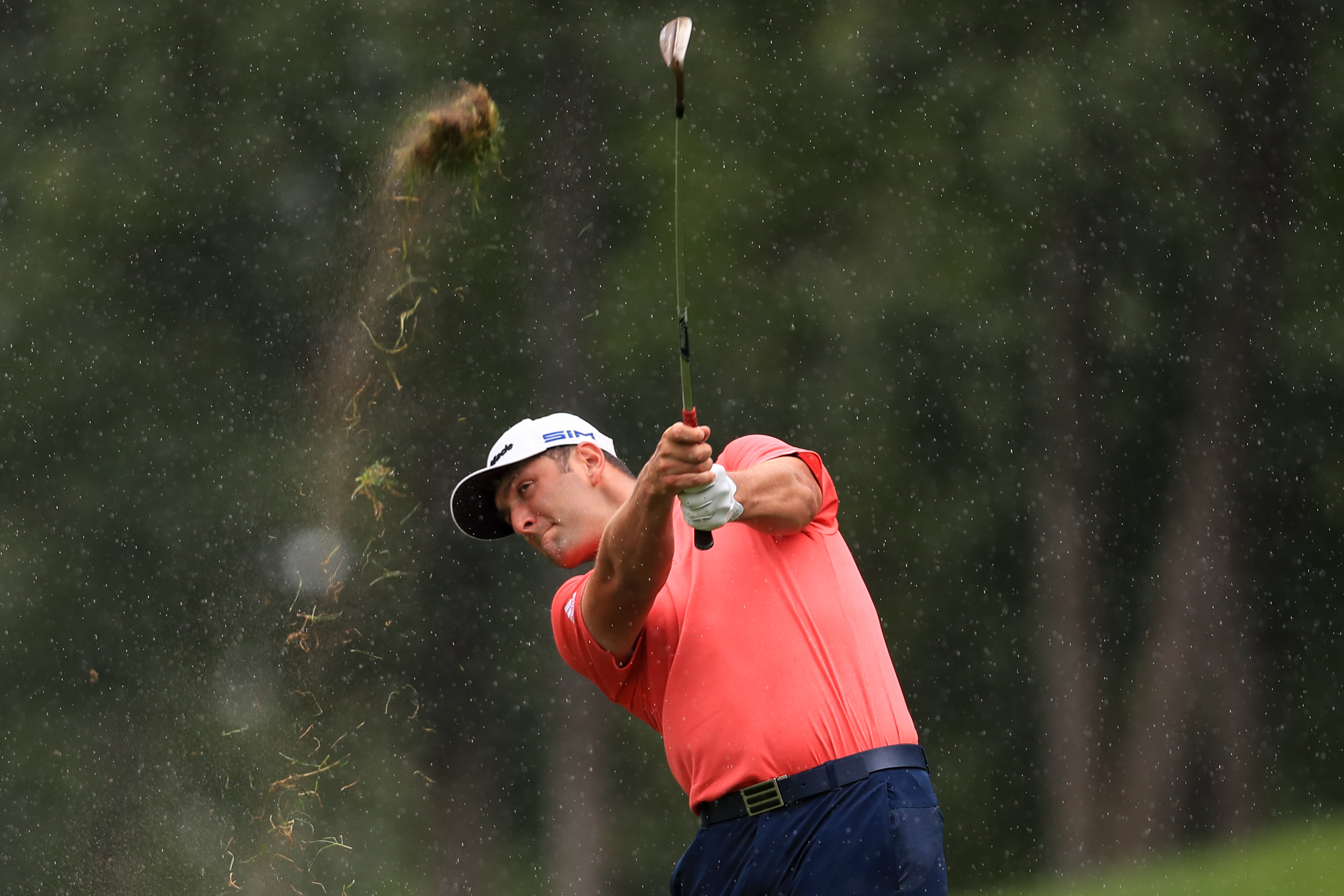DUBLIN, Ohio — Jon Rahm’s golf game swings between the spectacular, seething and suspicious.
When he gets rolling, the defending Memorial Tournament champion is as good as anyone. Just 25 years old when he won at Muirfield Village Golf Club in July, the victory moved Rahm atop the world ranking, making him only the fifth player to reach No. 1 before turning 26. The others? Rory McIlroy (four major championships), Jordan Spieth (three), Justin Thomas (one) and some guy named Woods (15).
That’s strong coffee. Phil Mickelson (six majors) has at times called Rahm the best young golfer on the planet.
But when Rahm roils, his club tossing and angry outbursts deflect attention from his immense talent. After being seen hammering his clubhead into the ground during the final round of the 2020 Memorial, the Spaniard received an on-air verbal reprimand of “chill” from CBS broadcaster Nick Faldo. Two weeks ago at the PGA Championship, Rahm slammed his iron into a TV microphone after a poor tee shot.
Now ranked No. 3 globally, Rahm does not apologize for losing his temper. (But if he did, it would be done thoughtfully; he is among the more introspective and self-aware players on Tour).
“I’m not mad if I get angry,” Rahm said last week, channeling Yogi Berra. “It helps me compete. I can’t tell you how many times I’ve gotten angry, then gone on a run of nine holes that locks me in.”

Jon Rahm plays his shot from the fairway on the ninth hole during the final round of the 2020 Memorial Tournament at Muirfield Village Golf Club in Dublin, Ohio. Photo by Aaron Doster-USA TODAY Sports
Rahm referenced the 2017 Farmers Insurance Open at Torrey Pines when, after lipping out for birdie at No. 10, he shot 6 under par over the last eight holes to win the first of his five PGA Tour titles.
“That lip-out was not on camera, but I got really mad and then you see what happened,” he said. “It’s a complicated logic process. Everybody gets angry on the golf course, but none of us want to play angry. You’re looking for that sweet spot where you use the anger to get in the focus zone to get you going.”
If Rahm rues anything about his behavior, it is that he has a propensity to whine.
“The complaining? I hate it, and judge myself heavily over it,” he said. “I see it getting better, but I really wish sometimes I had the level of maturity on the course that I have off it.”
Such refreshing transparency is rare among superstar athletes. Whether it carries to the golf course remains unclear, as multiple accusations of cheating have cast suspicion.
The wondering began in 2017 when Rahm was accused of breaking the rules by marking his ball incorrectly on the green during the Irish Open. He was cleared of wrongdoing, but soon after was caught up in more controversy when playing partner Lee Westwood reported him for moving a tree branch in an attempt to improve his stance before playing a shot during the first round of the 2017 British Open. Rahm again was cleared.
Even if we extend grace and attribute Rahm’s rules hiccups to lack of concentration more than intent to gain advantage, repairing a soiled reputation as a Tour rules breaker is a conundrum that requires a player to stop doing what he claimed he never did in the first place. Rahm can go the next 10 years without a single allegation of cheating, yet for some the stain will remain. Ask Vijay Singh or Patrick Reed about that.
“I’m an honest player,” Rahm has said more than once. And there’s the rub, because most Tour players never need to defend their integrity even once.
To that end, last year’s rules infraction on Muirfield’s 16th hole during the final round of the Memorial did not help Rahm’s reputation. Leading Ryan Palmer by three shots with three holes to play, Rahm chipped in for birdie, but he later was assessed a two-shot penalty when replay showed his ball moved slightly when he grounded his wedge in the rough. He won by three shots, but the penalty still rubs him wrong.
“I still can’t believe it, the fact that I couldn’t see what was going on,” he said, protesting that the two-shot assessment was misapplied because Tour rules make clear that for a penalty to occur the player must be able to see the ball move in real time.
Rahm is just as bothered that Tour officials did not notify him of the penalty before his TV interview that immediately followed the round, a decision that put him in an awkward position of trying to explain on camera something he never saw.
If that sounds like whining, well, he is working on it.
“Sometimes you have to take a few steps back before you leap forward,” he said.
Rahm made a big leap in April by becoming a father — son Kepa was born a week before the Masters — a change that has provided life perspective.
“I can sense a shift within me for the better,” he said. “Priorities change.”
At least off the course. On it?
“It’s not going to be a softer Jon Rahm,” he said. “I’ll still fight with every fiber of my being.”
Can’t wait to see it. And trust me, we will. The volcano is perpetually prepared to erupt.

